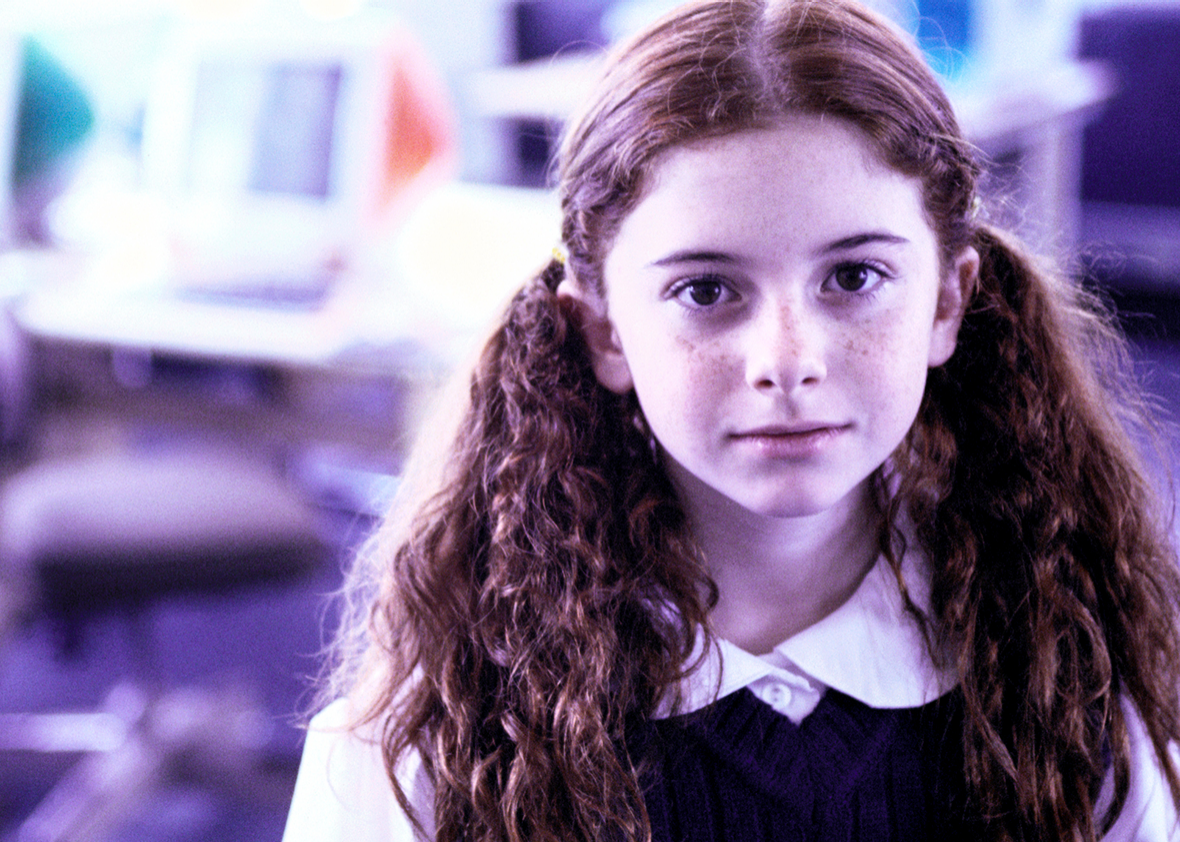In 1984 I was 9, and no one really talked to me about how polling worked in the days leading up to Election Day. Maybe there wasn’t really that much polling—like, maybe FiveThirtyEight wasn’t even a website yet? At any rate, I simply assumed that my parents’ favored candidate, Walter Mondale—and his vice-presidential pick, Geraldine Ferraro—would win. And so when I woke up the morning after the election to see that in fact they had lost 49 of 50 states, I was crushed to realize that in fact most of America did not agree with my parents or with me.
I thought of 1984 on Tuesday night as the results started spiraling into nightmare-land. Our two daughters spent the summer cheering with us for Hillary Clinton. We made them sit through her entire convention speech; we talked to them about what it meant for a woman to assume the highest office in the land; we were honest with them about how Donald Trump thought and felt and spoke about women. We took them with us Tuesday morning to vote and posted optimistic photos to Facebook.
And then it was 10 p.m., and things looked bad, bad, bad. As we walked home from our neighbors’ house for a very late bedtime, both girls asked if Hillary was going to win. “It doesn’t look good,” I said. Harper, who’s 9, wanted to nail down some specifics about red states and blue states, and which one our state, Virginia, had turned out to be. Lyra, who’s 11, was more blunt: “That horrible misogynist better not win.”
Now it’s 2 in the morning. Virginia is blue, and the horrible misogynist won. We’ve tried throughout this campaign to be honest with our kids about our hopes and dreams for this election, but tonight I realized I never really found a way to be honest with them about our fears. In six hours they’ll wake up and we’ll have to figure out how to talk to them about the election; about the next few years; about what this means about how their country thinks not only of women but of queer people, immigrants, and people of color.
So what do we say? The natural inclination of a parent is to protect his kids. This is my instinct even as my children get old enough to begin to understand the world. What I want to tell them is that things will be fine, America is still the best, we’ll have a chance to elect a woman four years from now. I want to hide our ashen faces and give them the long historical view and say: It’s going to be OK.
That would be hard, if still easier than being honest. But maybe that’s the wrong move. Not only because who the hell knows if everything’s going to be OK. Maybe if we want to raise girls who are ready to fight for the better country they deserve, we need to wake them up tomorrow, the first day of a changed America, and break their hearts. We need to tell them the truth, even though the truth—half of America thinks so little of them that they were willing to elect a man who only cares how fuckable they will one day be—is scary and sad. (Maybe I won’t use the word fuckable.)
I’m going to try. Am I strong enough? Beats me. (I can’t even imagine how much more difficult this conversation will be for parents of color.) I don’t know how hard it was for my parents to tell 9-year-old me in 1984 that Ronald Reagan won. But I bet they weren’t surprised the way I have been tonight, thanks to whatever stone-age polling was tipping them off. This time around I’m conveying the full weight of my disappointment and apprehension to a couple of girls I failed to prepare for such a thing. I expect they’ll remember it the rest of their lives. I hope so.
